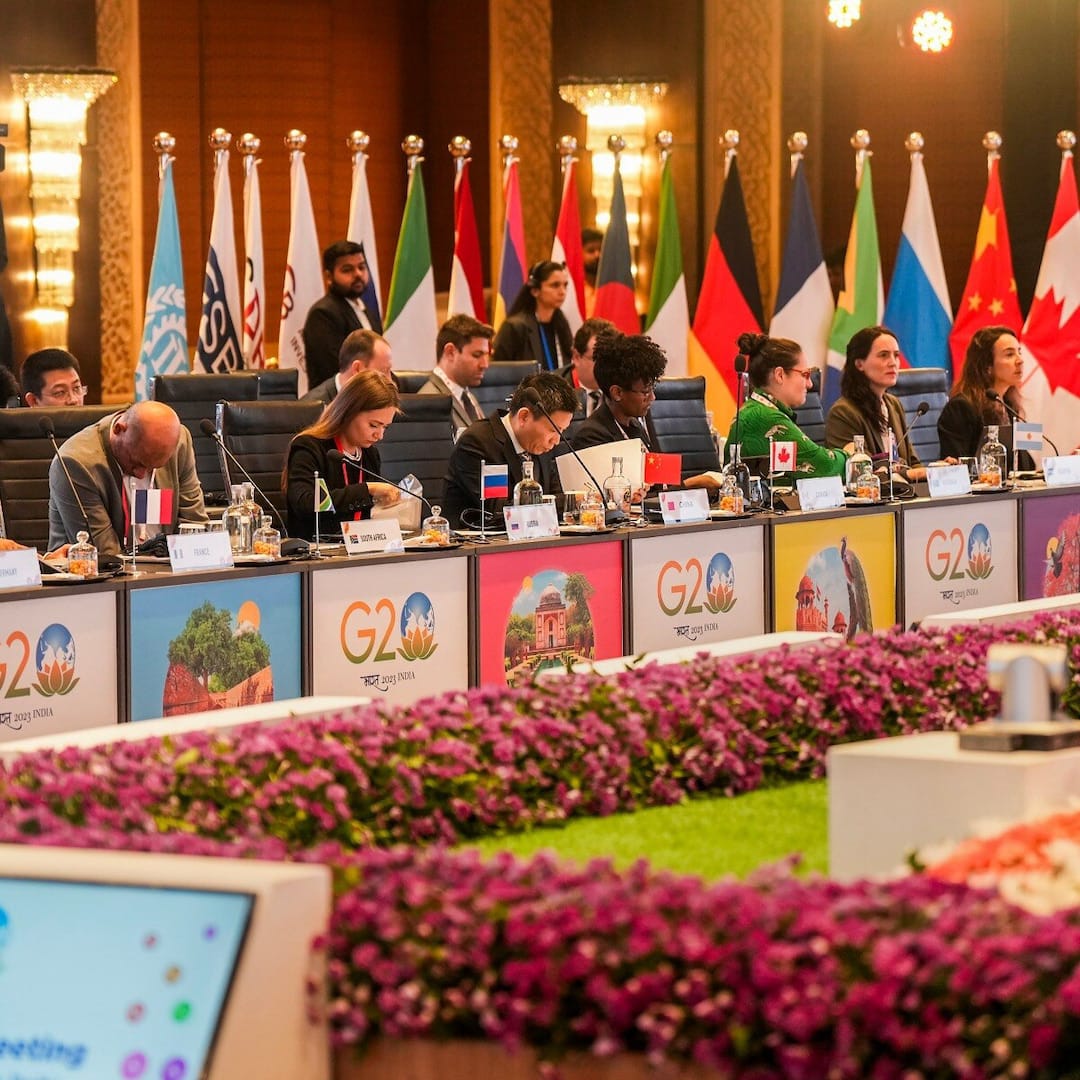Leaders from the world’s most powerful economies are set to descend upon India for the two-day G20 summit, which begins on Friday. The highly anticipated event, hosted by India under the optimistic slogan “One Earth, One Family, One Future,” is overshadowed by a myriad of pressing global issues. Russia’s invasion of Ukraine, concerns about the state of the global economy, and the urgent need to address climate change are casting long shadows over the proceedings.
Diplomatic Absences Raise Eyebrows
The absence of two significant global players, Russian President Vladimir Putin and Chinese President Xi Jinping, is a striking development. Both leaders have opted not to attend the summit, sparking questions about the unity of the G20. Russia’s delegation will be headed by Foreign Minister Sergei Lavrov, who has taken up the mantle in the wake of international scrutiny over an arrest warrant issued against Putin by the International Criminal Court for alleged war crimes related to the Ukraine conflict. China, on the other hand, will be represented by Premier Li Qiang, confirming suspicions that Xi Jinping is giving the event a wide berth.
Biden’s Agenda and the Power Play
The United States, represented by President Joe Biden, enters the summit with a clear agenda. Biden aims to strengthen alliances and lend support to developing nations while capitalizing on what Washington perceives as China’s difficulties. National Security Advisor Jake Sullivan highlighted the importance of addressing climate change and mitigating the socio-economic impact of Russia’s war in Ukraine. Treasury Secretary Janet Yellen, making her fourth visit to India in ten months, will also accompany Biden as the U.S. pushes for reforms within the International Monetary Fund and the World Bank to better serve developing countries. The White House seeks to ensure that the G20 retains its position as the “premier forum of economic cooperation globally.”
India’s Balancing Act
India, led by Prime Minister Narendra Modi, faces a unique challenge as it holds the rotating G20 presidency. While Modi is keen to enhance India’s global standing, tensions with China over border disputes and territorial claims pose a formidable obstacle. Additionally, India is eager to foster closer ties with Western nations, including the United States, Japan, and Australia, all members of the Quad alliance. Modi’s ambitious agenda includes advocating for the expansion of the G20 to 21 members by inviting the African Union, a move supported by President Biden.
Global Representation and Expectations
The G20, consisting of 19 countries and the European Union, collectively accounts for 85% of global GDP and represents two-thirds of the world’s population. Leaders from various regions will be in attendance, including German Chancellor Olaf Scholz, French President Emmanuel Macron, and European Commission President Ursula von der Leyen representing the European Union. Notably, leaders from G7 member countries like Britain, Canada, Japan, and Italy will also be present.
From the Asia-Pacific region, Indonesian President Joko Widodo, South Korean President Yoon Suk Yeol, and Australian Prime Minister Anthony Albanese will participate. Turkish President Recep Tayyip Erdogan will attend in person, and Saudi Crown Prince Mohammed bin Salman is also expected.
South Africa, the sole African nation in the G20, will be represented by President Cyril Ramaphosa. Brazil’s President Luiz Inacio Lula da Silva and Argentina’s Alberto Fernandez are anticipated attendees, though Mexican President Andres Manuel Lopez Obrador is likely to skip the summit.
United Nations Secretary-General Antonio Guterres, along with the heads of the IMF and the World Bank, will be present as observers, underscoring the summit’s global significance. Other leaders, including Bangladesh Prime Minister Sheikh Hasina and Nigerian President Bola Tinubu, will also grace the event with their presence.
As the G20 leaders convene in New Delhi, the world watches with anticipation, hoping that amidst the challenges and differences, they can find common ground to address the pressing issues that affect us all – a true testament to the summit’s theme of “One Earth, One Family, One Future.”














